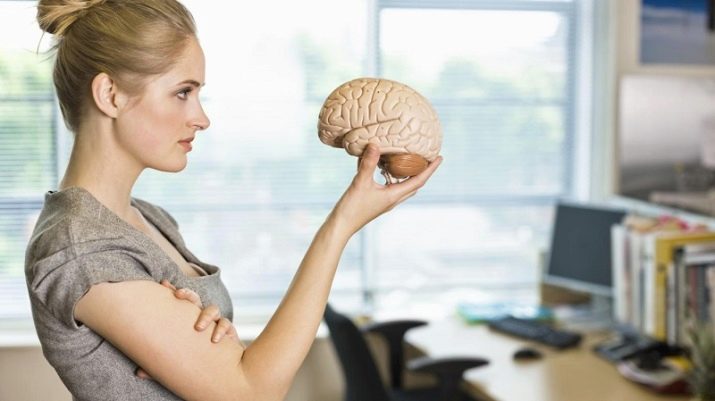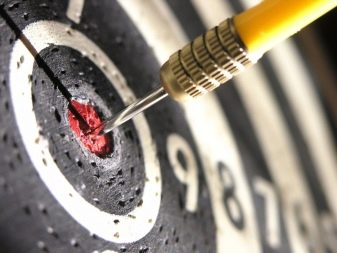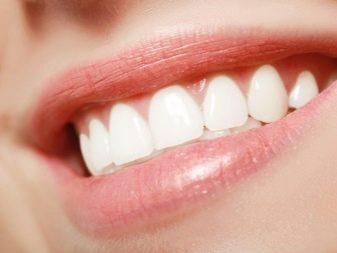Self-esteem: definition, levels and ways of raising

A lot in our life depends on how we feel about ourselves. It's about self-esteem. It influences our careers and relationships with people, it is important for maintaining inner harmony. What it happens and whether it is subject to correction, this article will tell.

What is it in psychology?
Self-esteem modern psychology calls a person's system of ideas about himself, his personality, place in society, about his qualities and merits. Self-esteem is a manifestation of self-awareness. A person differs from animals in the ability to evaluate himself, and it is these features that allow him to make his life choices.
Definition in a broader sense implies a person's ability to critically assess their actions and basic character traits, to try on different alternatives and opportunities. Self-esteem helps us set goals and move towards them. The meaning of the word also includes a certain moral satisfaction. People with normal self-esteem easily maintain harmony in their souls, they are confident in themselves, do not suffer from internal conflicts. When forming self-esteem, a person combines in the general field his ideas about himself, obtained by comparing himself with those around him and some life guidelines. Landmarks change over time. If a couple of centuries ago the ability to dance at balls was considered valuable, today the ability to dance does not affect the self-esteem of most people. There are also eternal values such as decency, honesty, responsibility, kindness, courage, etc. They affect self-esteem at all times.
Self-esteem can vary - in some situations it rises, in others it slightly decreases temporarily, it all depends on whether we like ourselves in a particular period of time in the circumstances in which we find ourselves.
But it is self-esteem in the end that itself regulates our perception, not allowing a person to scourge himself for a long time for a mistake or to elevate himself to the top of Olympus for a successfully completed, but quite ordinary task.

What does it consist of?
Psychologists believe that self-esteem includes two components that constantly interact in the structure of our self-perception. The formula is pretty simple - cognitive plus emotional.
- The cognitive part consists of a person's personal ideas about himself and his traits, skills, character, about the pros and cons. There is an active self-awareness, a person knows himself throughout his life.
- The emotional part consists of a person's attitude to himself, an internal assessment. These are the feelings that people have for themselves, approval or lack thereof, respect or disrespect, love and acceptance.
The characterization of this structure is rather arbitrary and is important only for theorists. In practice, both components act as a single unit. That is, everything that we learn about ourselves finds this or that emotional response in us, has a certain emotional color. This unity gives rise to ample opportunities - it supports internal moral self-control, self-worth, which will certainly affect a person's self-realization in different areas of his life.

Types and levels
The people have adopted a simplified scale of self-esteem, it is believed that it is either normal or abnormal - overestimated or underestimated. In the professional environment of psychotherapists and clinical psychologists, the gradation is wider. Experts distinguish between optimal and non-optimal self-assessment. Why is that? Because people rarely "fit" into certain standards and norms, and many tend to rate themselves slightly above average, and some - below average. But in either case, there is no talk of pathology. Both options are considered acceptable and objective.
They also talk about an adequate and inadequate assessment of oneself.
Adequate
Its criteria are quite simple - such an assessment of one's strengths and weaknesses is, on the whole, correct and stable. A person's ideas about himself correspond to the level of his capabilities and abilities. At the same time, a person's moral assessment of oneself can be both negative and positive. If a person says that he does not dance, because he is clumsy like a hippopotamus, this has a negative emotional color, but on the whole it corresponds to reality and does not cause any moral suffering in the individual about this.
If a person has adequate objective self-esteem, he is able to reasonably weigh his desires and capabilities, tasks and abilities. His goals in life are realistic, he often achieves them, easily moves up the career ladder, builds relationships with people. He is capable of healthy self-criticism that does not turn into a neurotic state. Normal self-esteem allows a person to calculate some of the main consequences of his decisions and actions.
With adequate self-esteem, people have a positive attitude towards others, respect them, take care of them, but are never under the pressure of public opinion. It is difficult to impose something on them, they have their own objective opinion on each issue.

Inadequate
Deviations are possible either up or down. In the first case, an overestimated self-esteem is formed, in the second - an underestimated one. And here a lot depends on the level of deviations. Small excesses or underestimations are extremely widespread, and in general they can be attributed to the norm, since they do not affect a person's behavior, they do not complicate his life. An unstable estimate below the average is easily corrected if necessary, and an unstable estimate is above average and does not need to be corrected - a person deserves a respectful attitude towards himself, appreciates himself, and this helps him.
Unfortunately, more and more often, specialists have recently noted significant deviations in self-esteem. In this case, both excessive overestimation and decrease in self-perception will certainly affect a person's life, his actions and decisions, making his existence at times unbearable. Separately, it should be said about the overestimated and underestimated self-esteem. Individuals who significantly overestimate their talents and abilities surround us everywhere. They are in any team, in any company. Such a person seeks to be in the center of events, in plain sight, gives advice easily and annoyingly, loves to lead in any situation, to dominate.
The self-importance of such a person is exaggerated, because it is often not supported by anything - there is neither the proper experience, nor the level of knowledge, nor character traits that would correspond to the tasks undertaken. This does not prevent a person from inventing their own image and adoring it. Such individuals do not perceive criticism, they are painful and sometimes hostile to simple remarks or indications of error. They do not value and cannot listen to other people's opinions if they differ from their own.

People with high self-esteem consider themselves to be right in everything and always. If something goes wrong, then they will be guilty of others, as well as circumstances, events, but not themselves. Their behavior is often demonstratively arrogant, they behave independently, do not know how to accept help from others, do not ask for it.
More often than not, if you try to point out to such a person his weak side, he will militantly reflect the remark, immediately transforming weakness into strength. For example, if you point out unreasonable stubbornness, the person with high self-esteem is likely to point out that this is not stubbornness, but determination and perseverance. If you point him to greed, he will definitely call it frugality and prudence.
People with high self-esteem often like to be “heroic” for show. If there are no spectators, they will not make grand gestures and noble deeds. As a rule, they need public approval as a fuel for their pride, they are characterized by a dismissive or disdainful attitude towards others. It is very difficult for such people to build happy family relationships, it is difficult to be friends with them and have business relationships. If such a person gains access to power, it is almost impossible to work under his leadership, because for a self-lover it costs nothing to humiliate or offend a subordinate.
But individuals with a deficit of self-esteem are difficult to discern at first. They are invisible in the team, because they prefer not to be in sight. At first, such people often give the impression of being modest, and this even disposes. But after talking with him a little longer, you will discover not the most pleasant sides.


Low self-esteem leads to a lack of self-love. A person considers himself a failure, incapable and worthless for anything worthwhile. He is indecisive, it is difficult to "budge" him.
A person needs support from others. Without it, he feels like in the epicenter of an atomic explosion. He is dependent on the opinions and judgments of other people, is easily inspired, he is often and easily manipulated. Easily changes his mind in favor of an imposed stranger and vice versa. Low self-esteem prevents a person from taking on any responsibility. Most often, at any opportunity, he will shift the responsibility from his shoulders to others. This even applies to responsibility for his own actions - "I did this because you decided so", "I would not have made a mistake if not for you."
Often, low self-worth is accompanied by a wide variety of inferiority complexes, phobias. Such personalities are excessively vulnerable, they can be offended not only with a word, but also with a casual look.As a rule, they cannot create full-fledged and long-term relationships, they hardly maintain friendly contacts. Often, low self-esteem becomes the cause of constant self-flagellation, when a person is too demanding of himself, suffers from perfectionism. In this case, pettiness is peculiar to them, they are prone to envy. They can take revenge with sophistication and sophistication.
Sometimes people with low self-esteem start demonstratively trying to prove something to others, and this always becomes the cause of bright but inadequate actions that cause laughter and bewilderment, fear and rejection in society. Like self-lovers, those who do not love themselves tend to be selfish. But these are qualitatively different egoists. They constantly feel sorry for themselves, nurture their failures and troubles. They are so absorbed in their suffering that they are practically unable to notice others, love, support, empathize.

Functions
The role of self-esteem is high. It is much broader and more versatile than we are used to thinking.
- Regulator - it depends on the degree of adequacy of self-assessment what decisions a person will make, what actions he will do in the end. It is also a self-regulator of actions, which does not allow an individual to step over certain boundaries.
- Protection - the level of self-esteem maintains a person's mental state in a stable state, ensuring the adequacy of his behavior and reactions.
- Development factor - self-esteem with its periodic fluctuations is needed for self-development, increasing their knowledge, skills, mastering new activities, qualitative changes in life.
- Reflection - the type and level of self-perception allows a person to compare reality and his beliefs, to correctly assess his place in the world.
- Harmony - thanks to adequate self-esteem, a person experiences adequate emotions, is satisfied with himself, experiences happiness.
- Adaptation - in adaptive mechanisms, when a person has to urgently rebuild under certain external changes, get used to a new society, conditions, it is self-knowledge that facilitates addiction.
- Motivation - self-esteem allows us to move forward, stimulates us to achieve goals, because for everyone it is essential that he thinks about himself when implementing tasks.
Self-esteem regulates our activities from the very beginning to the very end of each action. It is thanks to her loud signal "Stop!" we stop when we realize that we are doing something wrong, which will certainly entail the vice of self-criticism or dissatisfaction with ourselves.


Factors influencing self-esteem
Often a person with inadequate self-esteem is blamed for the fact that his ideas about himself are exactly like that. But is it worth blaming a person if the formation of a system of ideas depends on many factors?
Social
In the process of interaction with society, a connection is formed between reality and one's own sense of "I". Children begin to become aware of their personality by the age of one year, and it is from this age that the influence of factors affecting the final self-esteem begins. Before school and in primary grades, children are not yet able, due to their age, to adequately analyze their advantages and disadvantages, to compare real possibilities with abilities. At this age, the situation is in the hands of adults, it is they who create the basis, forming the first ideas about what is permissible and what is not, what is to be praised and what is condemned.
If the actions of parents, educators, teachers and mentors at this stage are wrong, then it is they who give a powerful impetus to the inadequacy of self-esteem of a growing person. What errors can be affected?
- Punishments, in their degree, do not correspond to the circumstances and the degree of the child's guilt.
- The punishments are unfair, undeserved.
- Too frequent laudatory "odes" to the child that do not have objective justification.
- An offensive comparison of a baby with others, designed to indicate his weakness, lack of abilities and talents, disobedience.
- Erection of a child "on a pedestal" in the family or in the school team.
- Frequent conscious focusing of the baby's attention on his mistakes and failures.
For kids, the opinion of others is not particularly important, for them the attitude and love of their parents is important. But already from adolescence, the situation is changing - the opinion of peers becomes a priority. And this influence persists throughout a person's life.
It is noticed that the more important for us a person who criticizes or praises us, the more strongly his opinion is imprinted on our self-esteem.

Personal
The assessment of one's own "I" is influenced by the character of a person and his temperament. More susceptible and sensitive people are more likely to be subject to deviations from the value norm in one direction or another than less emotional and calm individuals.
If a person is more inclined to the position of an introvert, the opinion of others is not so painful for him and in most cases does not affect his assessment of himself. Extroverts have a different picture - for them society and the ability to communicate with comfort is of paramount importance.
Level of claims
Each has his own. One wants to have a snow-white sea yacht and own a corporation, the other is aimed only at the modest provision of the daily needs of his and his family. Like self-esteem itself, aspirations are excessive or underestimated, inadequate. Adequate are those levels at which the capabilities correspond to the goal, allow it to be achieved. Obviously, a graduate with a small number of points obtained in exams should not apply to the best university in the country, and an employee with a low salary should not look for a sea yacht. If they do this, we can talk about the presence of exaggerated claims.
The low level is observed in those who have real opportunities, but do not use them for some personal reasons, for example, because of the fear of failure. Experts are sure that it is not an overestimated level of claims that distorts the personality and spoils life the most, but a reduced one.
It is he who creates the most fertile preconditions for social passivity, lack of motivation and goals, a person with great inclinations actually becomes a chronic loser.

Correction methods
A person can work on self-esteem problems on their own. But if the situation is already clearly pathological, you can and should seek help from a specialist, for example, a psychotherapist. Experts agree that an underestimation is easier to correct, and special psychological techniques and techniques help to raise it. Reducing too high self-esteem is always more difficult, it will take a long and painstaking work on yourself. The good news is that a person who realizes that he has an overestimated self-esteem has already embarked on the path of therapy - he was also able to critically evaluate himself, which means that he has already begun to work on developing an adequate perception of himself.
The general advice that the internet is rich in can have pretty mediocre results. Yes, meditation and art therapy are useful, but not always effective. First you need to decide in which particular area the assessment is inadequate - professional, personal or otherwise. On a piece of paper, write down your vision of how you develop relationships with others, work, how you assess your appearance, intellectual abilities, your knowledge, hobbies, assess your family and friends. Rate each area on a scale of ten. Adequacy is indicated by a result of 5 or so points in each area. Accordingly, more than 7 and less than 3 are alarming results, and correction should be carried out precisely in those problem areas where the assessment is inadequate.
Make a plan, indicate what is missing to normalize the perception of this area. And get down to action.
- Don't compare yourself to others. Each of us is a unique personality that has no analogues.
- Try to notice more beauty around, clear thoughts of negativity. Such thoughts are the strongest magnet for failure.
- As you work on a task, aim yourself only for success. Failures come to those who subconsciously expect them.
- Smile more and more to yourself and others.
- Communicate more, do not avoid help from others, ask if you need it.
- Find a dream job or an interesting hobby in which you can unleash your abilities to the fullest. In this case, the praise will always be justified.










